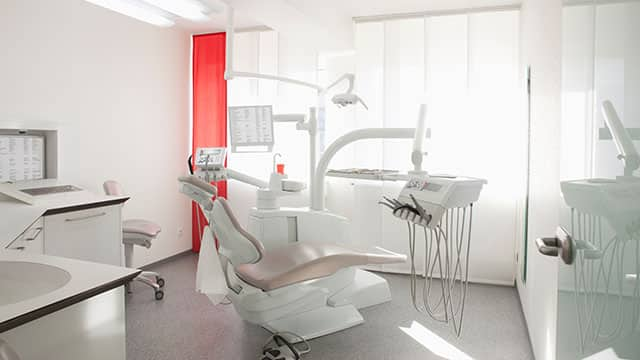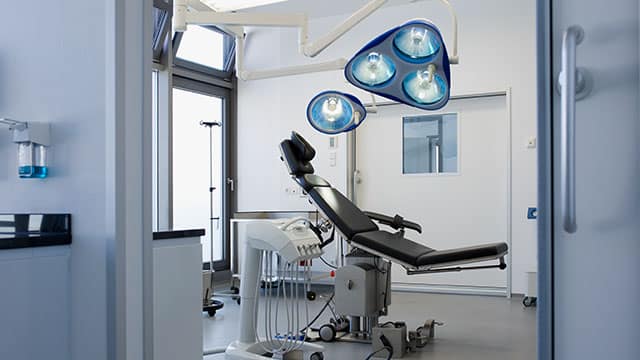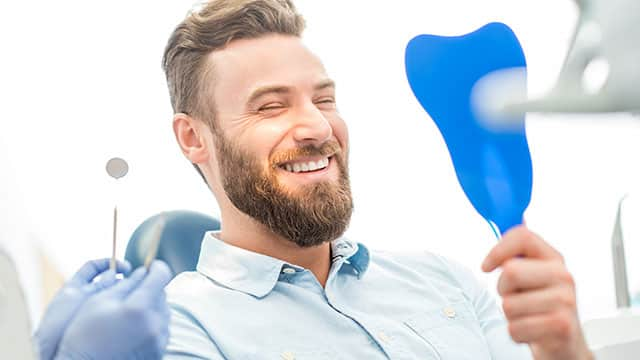What Is a Dental Laser?
If the drilling sound at the dentist makes you a little nervous, then dental laser treatment might be for you.
Laser stands for light amplification by stimulated emission of radiation. During a procedure, the laser will emit light energy in a narrow, concentrated beam. This light produces a reaction when it hits tissue, allowing it to remove or shape tissue.
Uses of laser in dentistry
- Removing tissue around an exposed wisdom tooth
- Reshaping gum tissue
- Removing and reshaping bone and gum tissue during crown lengthening procedures
- Removing inflamed gum tissue
- Removing muscle attachments that restrict tongue or lip movement
- Accelerating in-office tooth whitening procedures
- Reducing the discomfort from cold sores and cankers
- Removing small amounts of tooth enamel
- Preparing tooth enamel for composite bonding
- Repairing certain worn-down fillings
What are the types of dental lasers?
- Soft tissue lasers - used for procedures involving soft tissues in the mouth, like gums
- Hard tissue lasers - used to cut hard tissues in the mouth, such as teeth.
Benefits of Laser Dentistry
You may now be able to have your dental procedure performed with a dental laser instead of a drill. Here are more reasons why you may want to consider this procedure before you visit your dentist:
- Less bleeding
- Reduced pain
- Faster healing period
- Less damage to the surrounding tissue
- Reduced chance of infection
Are Dental Lasers Safe?
The U.S Food and Drug Administration has approved lasers sold in the United States. Before your dentist can perform dental laser treatment, they need to go through training for each specific dental laser device. Manufacturers, professional organizations, and dental schools provide training. So, before going for any dental laser procedure, don't hesitate to ask your dentist about the training they have received. Lastly, wearing a pair of special glasses during the operation will give you that extra protection!
Dental Laser vs. Traditional Methods
So what's better, dental laser or traditional methods? Well, there isn't enough research to determine this just yet. The American Academy of Periodontology (AAP) has reported that there is not sufficient evidence to support that treatment with a laser is any better than traditional treatments for periodontal disease, such as scaling and root planing.
Even though lasers in dentistry have been around for decades, each device's expensive equipment and limitations have prevented some dentists from investing in them. Yet those who use lasers are confident in their effectiveness and safety.
Prevention Still the Best Treatment
Taking good care of your teeth might mean that you never have to experience dental laser treatment. Practice good oral hygiene and remember to:
- Brush twice a day
- Clean in between your teeth with interdental brushes, floss, or water flossers
- Add a mouthwash to your oral care routine
- Visit your dentist twice a year.
This innovative procedure may not replace traditional dentistry, but with emerging studies, lasers could be a more common device in your dentist's practice. Talk to your dentist to learn more about dental laser treatment:
Oral Care Center articles are reviewed by an oral health medical professional. This information is for educational purposes only. This content is not intended to be a substitute for professional medical advice, diagnosis or treatment. Always seek the advice of your dentist, physician or other qualified healthcare provider.
ORAL HEALTH QUIZ
What's behind your smile?
Take our Oral Health assessment to get the most from your oral care routine
ORAL HEALTH QUIZ
What's behind your smile?
Take our Oral Health assessment to get the most from your oral care routine















